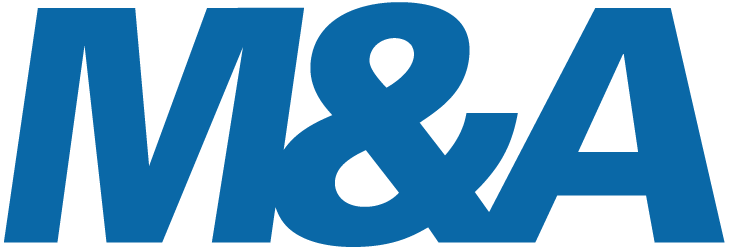Pitch Best Deal Mid-Cap 2020: Visma – Visionplanner

De beste deal van het jaar is meer dan het hoogste cijfertje in de krant en de kunst van het dealmaken is meer dan het opstellen van een contract. De Awards voor de beste deal zou dus niet alleen op de prijs van de deal gebaseerd moeten zijn, maar vooral op de – toegevoegde – waarde voor een bedrijf en de exit.
Bekijk alle Best Deal Mid-Cap pitches & stem direct
Name of the deal: Visma acquired Visionplanner
Date: 1 April 2020
Published value: 50 – 100 Million (€)
Buyer(s): Visma
Target: Visionplanner
Seller: Quetty Investment
M&A Database: View more details of the deal
Involved firms and advisors buy side:
PwC (Tax Advisory and Financial Due Diligence) Visma (In house Corporate M&A), Simmons & Simmons (Legal Advisory Corporate M&A)
Involved firms and advisors target:
PhiDelphi Corporate Finance (M&A Advisory), Deloitte (Financial Due Diligence), Borsboom & Hamm (Legal Advisory Corporate M&A)
Involved firms and advisors sell side:
PhiDelphi Corporate Finance (M&A Advisory), Borsboom & Hamm (Legal Advisory Corporate M&A), Deloitte (Financial Due Diligence)
Pitch
Brief description deal / Deal outline
Via a very competitive auction Visionplanner (a software and dashboarding tool for the accountancy sector) was sold to Visma during the lockdown of Covid-19. PhiDelphi Corporate Finance was the advisor to the CEO and sole shareholder Gert Kwetters.
Why should this deal win the Award for Best Deal 2020?
We believe the acquisition of Visionplanner by Visma should win the Best Mid-Cap 2020 award as it was the most successful highly competitive auction that ran straight through the most uncertain period of the first wave of Covid-19.
We had been engaged by the CEO and sole shareholder of Visionplanner after winning an RFP at the end of November 2019. Preparations on the process, supported by a VA report of Deloitte and a Legal Memo of Borsboom & Hamm, had been completed by January and the process started early February. Visionplanner is the leading, fully cloud based, financial planning tool for the accountancy sector. The accountancy software sector is characterised by a strong consolidation trend as a result of digital transformation of the accountancy industry. We set-up a competitive auction in which only strategic buyers, given large expected synergies, were allowed to participate.
After contacting bidders early January, the bid deadline for the first round was 28 February and after some internal deliberations the 2nd round started on 5th March with a binding offer date of 2nd of April. We staged the process in a way that initial management meetings had already been held in the first round and that, very eager parties, could fulfil their DD requirements at a fast pace. Together with the Visionplanner MT we visited the Norwegian head-office of Visma early March after a week in which the Norwegian stock market fell by 33% and 2 days before the lockdown in Norway. Debt markets closed almost completely but Visma still provided a binding bid that led to the signing of the transaction with Visma on 23 March (well within the second-round process timelines) and a closing on 1 April.
Deal rationale
The rationale for the deal was twofold. First, find a strategic buyer for Visionplanner so the company could flourish under a larger owner. Visionplanner is a very sophisticated tool that works on top of all bookkeeping systems like Exact Online, Twinfield (of Wolters Kluwer), Visma AccountView and AFAS. Consolidating all this information is of high strategic value to the users, mainly accountants as it moves away from backward looking accountancy on the basis of an annual report and becomes a way to provide real time information to the clients. Visionplanner is the market leader in this segment and therefore very interesting to large financial software providers and several strategic buyers wanted, for different reasons, to increase their position in this segment. Secondly, the CEO and sole shareholder had been running the company since 2005 and saw that to further grow the company and internationalise the business other managerial skills were needed. He also wanted to sell 100% of the business.
What is the impact of this deal for the company?
Visionplanner is now part of a fast-growing international conglomerate where it can grow and add value to the different business lines becoming even more relevant to its clients. The very scalable and already built IT infrastructure can now be rolled out internationally much quicker.
What is the impact of this deal for the direct stakeholders?
The outcome was a 100% financial exit with no earn-out for the CEO / shareholder at a premium valuation surpassing initial expectations by 50%. The CEO is still working for the buyer but on a normal salary scheme basis. The company will remain a standalone organisation, both physically and culturally and employees retain their specific (not always customary) benefits.
What is the impact of this deal on society?
The Visionplanner tool helps to reshape the accountancy sector. This deal ensures that the company can further grow and provide users with even more insights by further integrating information now that it is part of the Visma network.
What was most complex about this deal?
The complexity of the deal revolved around that Visionplanner was a fast growing and profitable business in an interesting segment of the market but that several strategic parties were interested for different reasons. Some were protecting their market share while others were trying to gain a market position or get a tool for international expansion. We had to tailor the process to ensure all parties would remain interested to get full competitive tension. Covid-19 provided much uncertainty in the market and we had to try to maintain the pace to get the best result possible. The 100% exit wish of the CEO and the company specific Christian identity (e.g. not working on Sunday’s, no insurance in and of the company, strong focus on helping the community it is part of) made this all more interesting and challenging.









